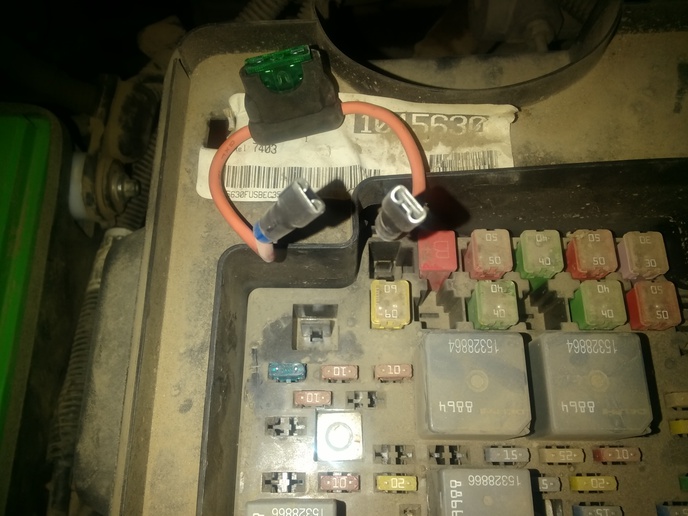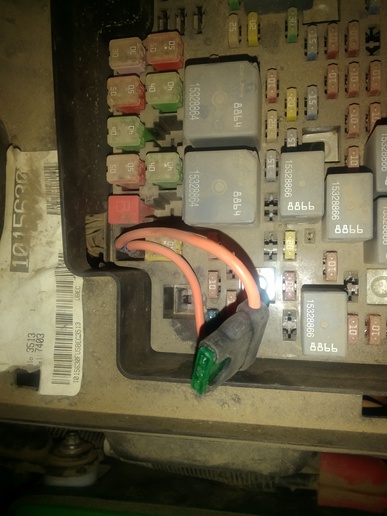Eldon (WA)
Well-known Member
I was hauling manure for a friend with my '16 Duramax and 14k dump trailer today. On the 3rd load the battery in the trailer was getting weak already, so I went home and put the big charger on it and check the charge fuse on the truck. Sure enough, it had blown. It was a little square "micro" 30 amp female type like I had never seen before. Walmart didn't carry them, so had to go further into town to the auto parts store. They had it...$4.97 each! Nothing special about it, except the price...no reason the little spade fuses could not have been used at a much lower cost. I suppose some engineer got taken out to lunch by the manufacturer of that fuse, so that is what he used. I'm thinking of "re-engineering" it to use the cheaper fuse. If I forget to unplug the trailer every time I dump it seems it can blow the fuse...did it with my Dodge also. You would think they would have something to guard against this....



